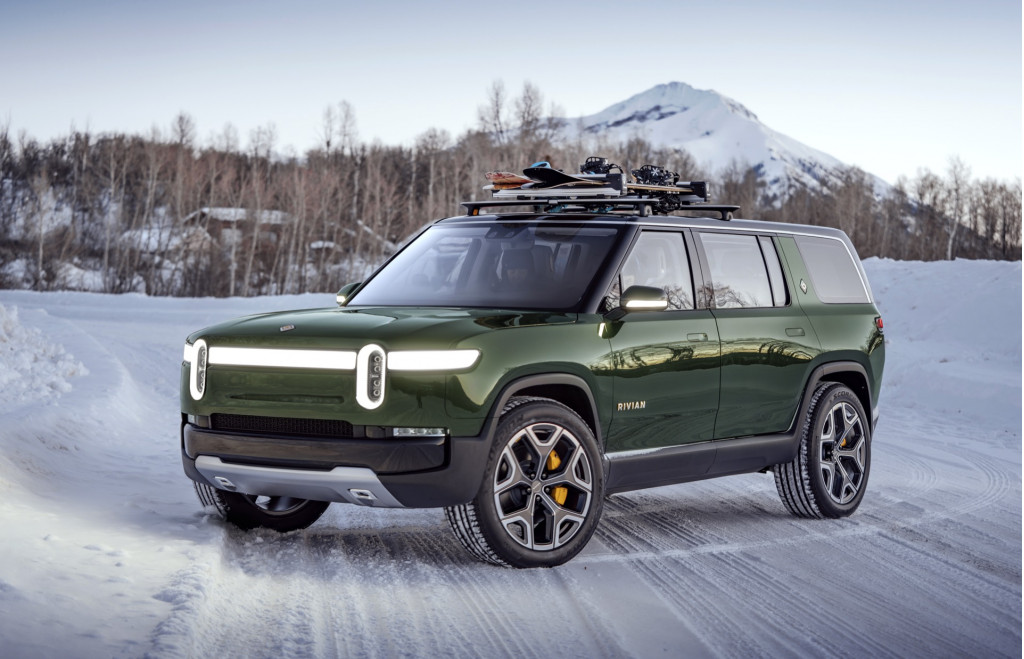Electric vehicle startup Rivian hasn't delivered any vehicles yet, but details of more models beyond the company's R1S SUV and R1T pickup truck have already surfaced.
Rivian CEO R.J. Scaringe in 2019 said the company was looking to have up to six vehicles by 2025, one of which is thought to be a performance-oriented crossover.
And in 2020 he said the company would launch smaller vehicles than the full-size R1T and R1S to cater to tastes in China and Europe, where Rivian plans to expand starting in 2022. He said at the time that some production would also likely take place outside the U.S.
We now have an idea of what they might be called. The folks at the Rivian Owners Forum have discovered multiple trademark filings made by Rivian with the United States Patent and Trademark Office. For SUV names, there's R1S right up to R5S, and for pickup names, there's R1T right up to R5T.

Rivian R1S
Rivian isn't necessarily going to launch a model for each name it's trademarked, but it shows that the company is at least keeping its options open should it decide to in the future. Or maybe it already has.
Mind you, there could be even more vehicles from Rivian. The company is also open to developing and manufacturing vehicles for other firms, something we've already seen in the case of the delivery van developed exclusively for key investor Amazon. The online retail giant has already ordered 100,000 of them.
As mentioned above, Rivian hasn't started production of any of its vehicles, but Scaringe in a letter sent to R1T and R1S reservation holders earlier in July promised to start production in September. The vehicles will be built at Rivian's plant in Normal, Illinois, which the company acquired from Mitsubishi in 2016.
Rivian also said in July that it is seeking a location for a second U.S. plant, no doubt in anticipation of future additions to the lineup. Rivian made the announcement together with news that it raised $2.5 billion in its most recent round of funding, bringing the total funding raised since 2019 to $10.5 billion.
